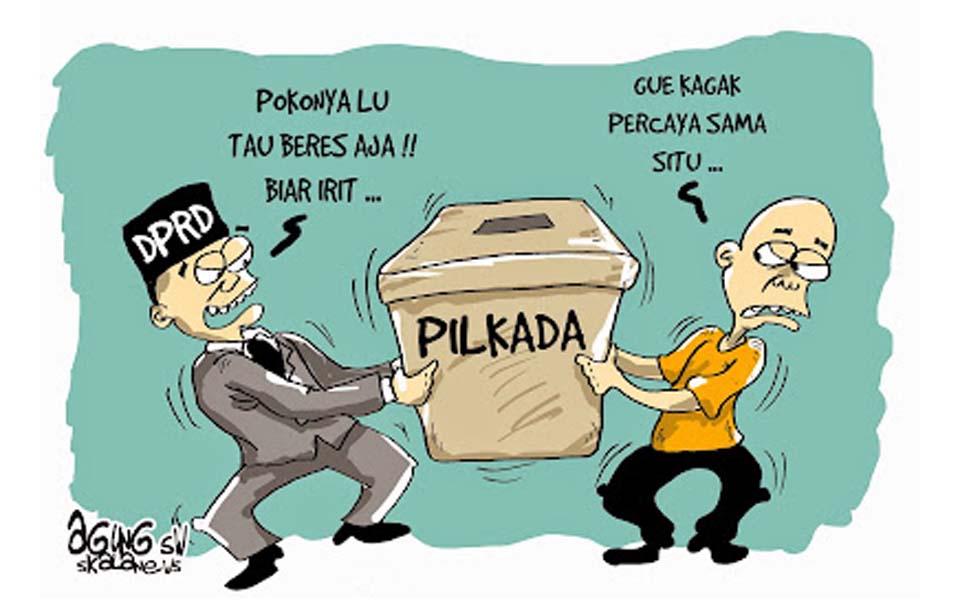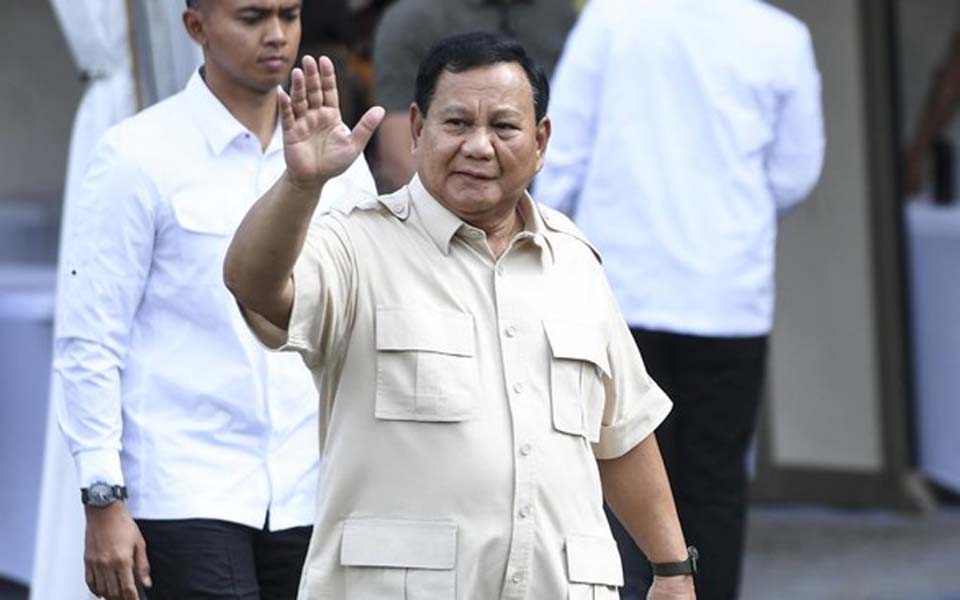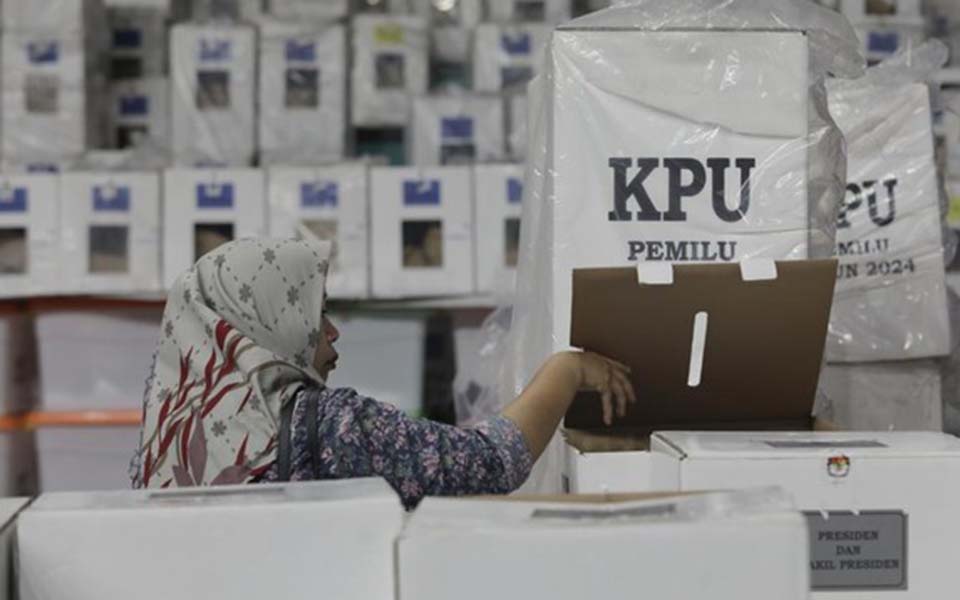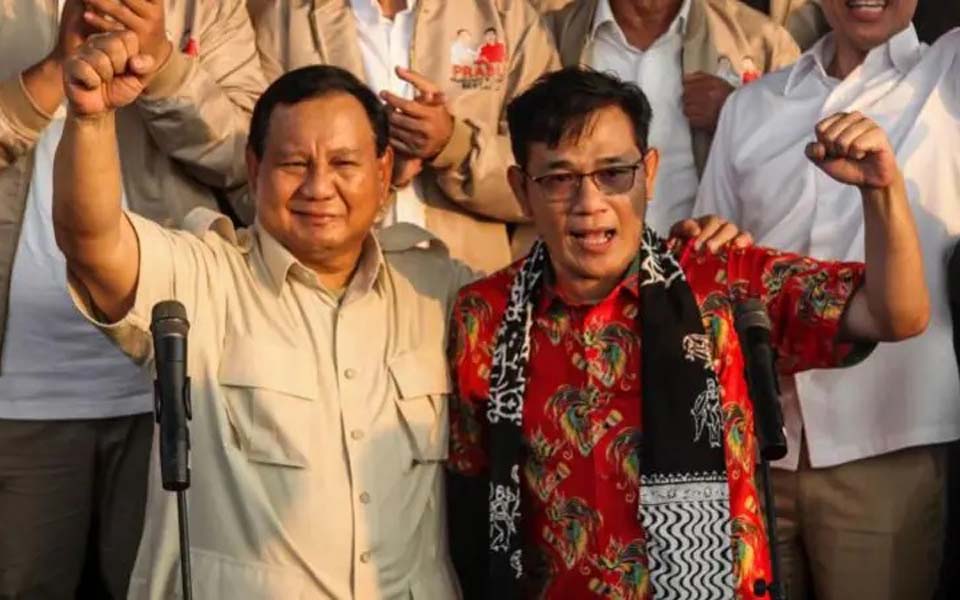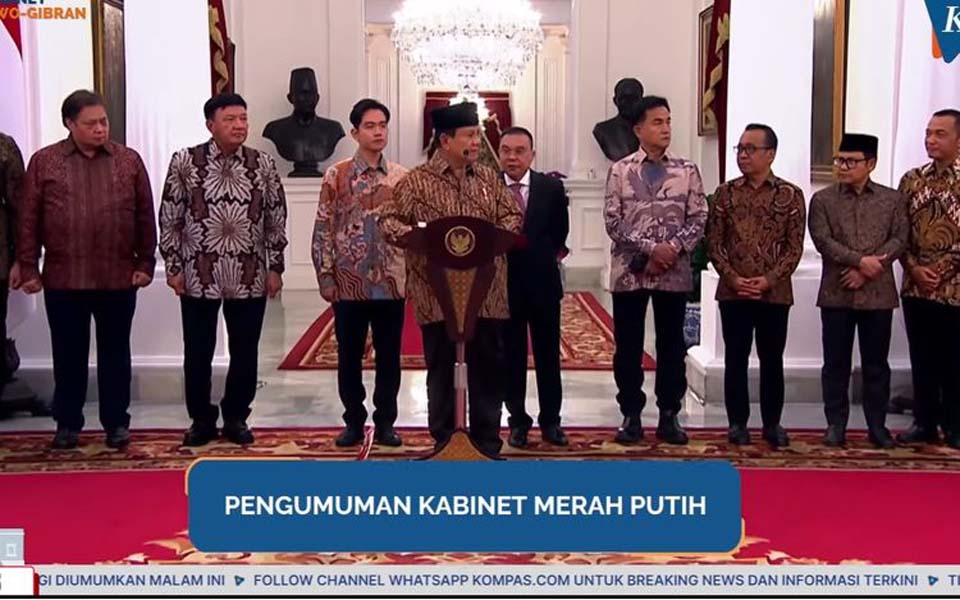Marcellus Hernowo – As well as celebrities and family members of core political party leaders, the provisional list of legislative candidates that will take part in the 2009 general elections also contains a number of 1998 student movement activists. Is this one of the positive signs coming out of the process of democratisation in Indonesia, particularly in relation to the cadreisation of the national leadership?
1998 activists, who have become legislative candidates, include among others former People’s Democratic Party (PRD) chairperson Budiman Sudjatmiko and activists Pius Lustrilanang and Desmond J. Mahesa. The last two were also victims who survived the abduction of pro-democracy activists in 1997-1998.
Their decision to become legislative candidates is as if they want to follow in the footsteps of their colleagues who have already “tasted” a seat in parliament such as Anis Matta (Justice and Prosperity Party) and Nusron Wahid (Golkar Party).
As part of preparations to win a legislative seat, Sudjatmiko has opened offices in Cilacap and Banyumas in Central Java, the electoral districts where he will be competing in the 2009 elections. At both offices he is focusing on communications and meetings with various local social organisations such as youth, farmers and students.
“Coincidentally I was born and grew up in Cilacap. In 1990-1994, I was also involved in the organisation of plantation workers and farmers in the area so it is relatively easy for met to come to Cilacap and Banyumas, and struggle for the wishes of the residents of these two areas if, in the end I am able to get a seat in the DPR [House of Representatives]”, explained Sudjatmiko.
Sudjatmiko’s struggle to become a member of the DPR began on December 3, 2004 when he along with 51 colleagues in the PRD decided to become members of the Indonesian Democratic Party of Struggle (PDI-P).
“I became involved in practical politics, in this case a political party, because in order to bring about real reforms it requires political power. If in the past I struggled through demonstrations, now hopefully [it can be] through the DPR”, he said.
An almost identical view was expressed by the former general secretary of the National Gathering of 1998 Activists (Pena 98), Adian Napitupulu. “One of the recommendations of the Pena 98 National Meeting in June 2007 was to try to get into the legal political arena in order to ensure that there would be the reforms that had been anticipated. Because, after reflection, up until now our movement has had one particular deficiency, that is we did not have the capacity to implement policies. We are trying to overcome this problem by getting into parliament”, said Napitupulu.
As a part of implementing this recommendation, continued Napitupulu, members of Pena 98 have now become legislative candidates in 23 provinces, both for the national as well as regional parliaments, with various rankings on legislative candidate lists and with different political parties.
Lustrilanang, one of the victims that survived the abduction of activists in 1997-1998, has also decided to become a legislative candidates for the Great Indonesia Movement Party (Gerindra Party) because in his view, political power is required in order to carry out reform.
When asked about leading members of Gerindra, such as former army special forces (Kopassus) commander Prabowo Subianto and former National Intelligence Agency (BIN) deputy chief Muchdi Purwoprandjono [who is now standing trial for the premeditated murder of human rights activist Munir], two former Indonesian military officer who had to relinquish their positions because they were believed to have been responsible for the abduction of activists in 1997-1998, Lustrilanang answered, “In politics there are no eternal friends or enemies. Besides, their involvement in the case has already been resolved legally”.
Moreover, continued Lustrilanang, his joining the Gerindra Party is part of an effort at national reconsolidation, which is an important model that is required for Indonesia to move forward.
“Among those that now claim to be reformists, there are also many whose bearing is the same as the New Order [regime of former President Suharto], obstinate and authoritarian. So, in the end, it all depends upon the person, and their commitment”, he asserted.
Prior to joining the Gerindra Party, Lustrilanang once became a member of the PDI-P and the Democratic Renewal Party (PDP), as well as establishing the National Unity Party (PPN).
As well as being motivated by the ideal of carrying out reform, there are also activists who have decided to become legislative candidates because they want to obtain political experience. “Aside from wanting to learn, there happens to be the opportunity [offered by the] 30 percent quota for women [on legislative candidate lists] so I took advantage of it,” said the executive director of the Institute for Public Research and Advocacy (Elsam) Agung Putri.
Cadreisation
There are also the consideration within the current democratic environment that it is quite legitimate for an activist to become involved in practical politics, because it is a part of their political right as citizens. Their decision to become legislative candidates is considered important for the cadreisation of the national leadership.
Under an open political system such as exists now, shouting and screaming is not enough to improve the life of the nation, providing correction from outside the system. It requires good and quality people to join in the system in order to improve it from within.
Moreover, they are convinced that Indonesia’s reawakening will take place faster if there is intensive networking and communication between those who are inside and those who are outside the system.
On the other hand however, the inclusion of young activists on legislative candidate lists with a track record that is still relatively clean also benefits the political parties that sponsor them. These activists can provide “cover” for the poor records of these political parties in the past. Moreover, political parties can be seen as “reformist” or to be promising change. Such an image of course, is needed to bolster the number of votes they will receive in the 2009 elections.
The presence of these former activists will also enhance the bargaining position of the political parties concerned if later on they have to form a coalition or cooperate with other political forces.
In the end however, only the future will be able to testify to the real and basic reasons for these former activists becoming legislative candidates.
Is it really for tactical reasons, that is to more effectively struggle to build a better Indonesia? Or is it only for pragmatic reasons, that is because they can’t resist the temptation of enjoying the sweat rewards of power? Or, it could also just be part of an effort to fulfil the desire for adventure.
What is clear, is that 1966 activists Soe Hok Gie once deplored the position taken by some of his friends who began to forget their commitment because they were too busy enjoying the comfort of riding in a Holden sedan.
Hopefully such disappointments will not be repeated...
1998 activists on legislative candidate electoral lists:
Indonesian Democratic Party of Struggle (PDI-P)
- Budiman Sudjatmiko (former People’s Democratic Party chairperson)
- Adian Napitupulu (former general secretary of the National Gathering of 1998 Activists)
- Agung Putri (Institute for Public Research and Advocacy executive director)
Democrat Party
- Anas Urbaningrum (former Islamic Student Association general chairperson)
Justice and Prosperity Party (PKS)
- Rama Pratma (former University of Indonesia Student Senate chairperson)
Star Reform Party (PBR)
- Dita Indah Sari (labour activist)
Gerindra Party
- Pius Lustrilanang (victim of the 1997-1998 abductions)
- Desmond J. Mahesa (victim of the 1997-1998 abductions)
[Translated by James Balowski.]











